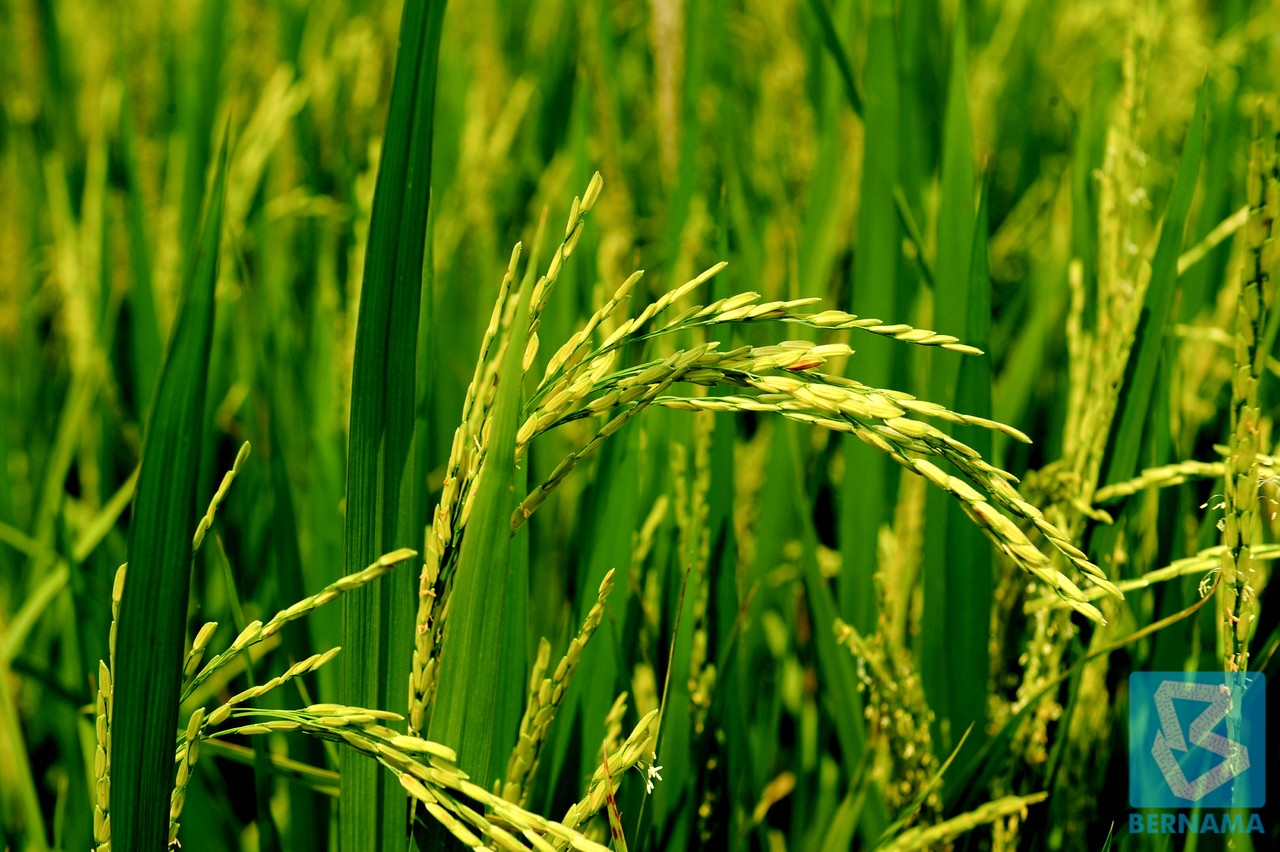ADVERTISE HERE

Dr Rundi said said the gene bank is part of the ministry’s efforts to conserve traditional rice genetic resources. — Bernama photo
KUCHING (May 14): The Ministry of Food Industry, Commodities and Regional Development will upgrade the present paddy seed storage facility in Semenggoh into a modern rice gene bank.
In revealing this, Food Industry, Commodities and Regional Development Minister Dato Sri Dr Stephen Rundi Utom said the gene bank is part of the ministry’s efforts to conserve traditional rice genetic resources.
“My ministry is embarking on conserving traditional rice genetic resources through upgrading the existing paddy seed storage facility at the Agriculture Research Centre Semenggoh to a proper and modern gene bank.
“This initiative is critical as a gene bank preserves plant genetic resources. The upgrading of the existing paddy seed storage facility will be done in phases. Phase 1 of the upgrading costing RM300,000 is expected to be completed by November 2024,” he said in his ministerial winding up speech at the State Legislative Assembly today.
He said an estimated 4,800 metric tonnes of quality paddy seeds are required to achieve 60 per cent rice self-sufficiency level (SSL) by 2030.
Revealing that 600ha of land is needed for paddy seed farms, he said more seed farms will be developed in other locations across Sarawak.
Currently, Sarawak has one seed farm spanning 180ha in Stumbin Bijat, Sri Aman.
“The establishment of Seed Production and Processing Centre (SPPC) is crucial in processing and supplying certified high-quality paddy seeds. In addition to SPPC Stumbin Bijat, Sri Aman, my ministry will establish more SPPCs throughout Sarawak,” he said.
He said the ministry through the Department of Agriculture Sarawak is in collaboration with various research agencies, led by the Malaysian Nuclear Agency, to develop a new high-yielding rice variety.
The research project funded by the Ministry of Science, Technology, and Innovation will commence in October 2024 on 7ha of land in Stumbin, Sri Aman.
“Lately there has been a growing interest among private sectors on hybrid rice cultivation. It was reported that this hybrid rice adapted well to local climate and produced high yield. However, these results are preliminary and need to undergo several trials and verification by Department of Agriculture Sarawak.
“I would like to reiterate in this august House on the importance of complying with the biosecurity regulations governing the importation of planting materials. Apart from complying with the importation procedure, paddy industry players are only allowed to plant hybrid variety at designated isolated areas to prevent cross-pollination of hybrid and traditional varieties and thereby preserving the genetic purity of traditional paddy,” he said.
To ensure the sustainability and to maintain the genetic purity of Sarawak traditional rice varieties, he said the ministry has established zones for selected varieties: namely Bario in Bario Highlands; Adan in Ba’Kelalan; Biris in Lubok Punggor, Samarahan; Bajong in Lubok Nibong, Betong; Wai and Saga in Daro; and Mamut in Sri Aman.
He added currently there are only 13 registered and active rice millers in Sarawak.
“Considering that Sarawak is embarking on large-scale paddy cultivation, my ministry will enhance paddy post-harvest capacities by collaborating with rice industry players to establish post-harvest complexes at the southern, central, and northern regions of Sarawak,” he added.









 English (US) ·
English (US) ·